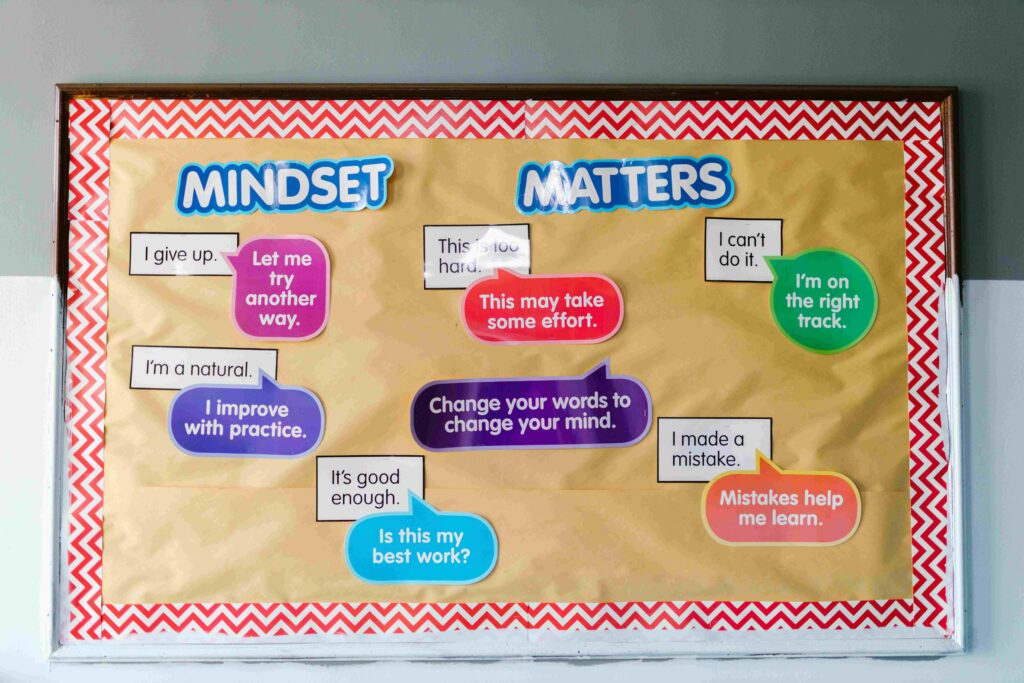Developing a Growth Mindset: How Psychology Can Help You Reach Your Potential

In the pursuit of personal and professional success, cultivating a growth mindset can be a game-changer. Rooted in the principles of psychology, the concept of a growth mindset revolves around the belief that abilities and intelligence can be developed through dedication, effort, and perseverance. By embracing this mindset, individuals can unlock their full potential, overcome obstacles, and achieve their goals. In this article, we delve into the psychology behind developing a growth mindset and explore practical strategies for fostering this empowering mindset in your life.
Understanding the Growth Mindset
Coined by psychologist Carol Dweck, the concept of a growth mindset contrasts with a fixed mindset, which revolves around the belief that abilities are innate and unchangeable. Individuals with a growth mindset view challenges as opportunities for growth, embrace failure as a stepping stone to success, and persist in the face of setbacks. They understand that talents and abilities can be developed over time through dedication, learning, and effort.
Psychological Principles Behind the Growth Mindset
1. Self Actualization: Self-Actualization is the realization of one’s fullest potential, encompassing personal growth, self-awareness, and the pursuit of meaningful goals. Rooted in Maslow’s hierarchy of needs, it represents the highest level of human development, where individuals strive to become the best version of themselves.
2. Self-Efficacy: Self-efficacy, coined by psychologist Albert Bandura, refers to an individual’s belief in their ability to succeed in specific situations or accomplish a task. Cultivating a growth mindset enhances self-efficacy by fostering confidence in one’s ability to learn, grow, and overcome challenges.
3. Neuroplasticity: The brain’s ability to rewire and adapt in response to experience is known as neuroplasticity. By engaging in challenging tasks, learning new skills, and persisting through difficulties, individuals can promote neuroplasticity and enhance their cognitive abilities.
4. Attribution Theory: Attribution theory examines how individuals interpret and explain the causes of their own and others’ behaviour. Those with a growth mindset tend to attribute success and failure to factors within their control, such as effort and strategy, rather than fixed traits like intelligence or talent.
5. Goal Setting: Setting challenging yet attainable goals is essential for fostering a growth mindset. By establishing clear objectives and creating a roadmap for achievement, individuals can stay focused, motivated, and committed to their personal and professional development.
Practical Strategies for Developing a Growth Mindset
1. Embrace Challenges: Instead of shying away from difficulties, embrace challenges as opportunities for growth and learning. Approach tasks with a curiosity mindset, viewing setbacks as valuable feedback that can inform future efforts.
2. Learn from Failure: Adopt a positive attitude towards failure and setbacks, recognizing them as essential steps on the path to success. Reflect on what went wrong, extract valuable lessons, and use them to inform your future actions.
3. Cultivate Grit and Resilience: Grit, a term coined by psychologist Angela Duckworth, refers to passion and perseverance in the pursuit of long-term goals. Cultivate grit by staying committed to your goals, maintaining a resilient attitude in the face of adversity, and bouncing back from setbacks with renewed determination.
4. Seek Feedback and Growth Opportunities: Solicit feedback from peers, mentors, and supervisors to gain insights into your strengths and areas for improvement. Embrace constructive criticism as an opportunity for growth and use it to refine your skills and performance.
5. Foster a Learning Mindset: Approach life with a lifelong learner’s mentality, actively seeking out opportunities for growth, exploration, and self-improvement. Continuously expand your knowledge, acquire new skills, and challenge yourself to step outside your comfort zone.
6. Use Affirmations and Visualization: Harness the power of affirmations and visualization to cultivate a positive mindset and reinforce your belief in your ability to succeed. Affirm your strengths, capabilities, and potential, visualizing yourself overcoming challenges and achieving your goals with confidence and determination.
The Final Thought
Developing a growth mindset is not merely about talent or intelligence; it’s about attitude, perseverance, and resilience in the face of challenges. By embracing the principles of psychology and adopting a growth mindset, individuals can unleash their full potential, overcome obstacles, and achieve their goals. Cultivate a mindset of growth, learning, and possibility, and watch as you embark on a journey of personal and professional development that knows no bounds. With dedication, effort, and the right mindset, the possibilities for growth and achievement are endless.





Responses